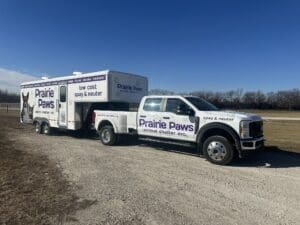By Trish Svoboda
Just as newborns need extensive care, so do the elderly as they approach the end of life. For many, this care is provided by a service known as hospice.
“Hospice is a form of care that focuses on comfort, not healing,” said Erin Martinez, K-State Research and Extension specialist on adult development and aging. “With hospice, we are helping people live out the end of their life with dignity to make the entire dying process be the best it can be.”
Martinez explained that a hospice team includes doctors, nurses, aides, social workers, and religious counselors for those who seek spiritual guidance. This team specializes in end-of-life care, aiming to create a positive experience for both the patient and the family by keeping the patient comfortable and educating the family about the dying process. Hospice decisions are family-based, but the individual ultimately determines how they want to experience the end of their life.
To qualify for hospice care, a patient must be diagnosed with a terminal illness expected to result in death within six months if the disease follows its usual course. Hospice care can be provided in the patient’s home or in a facility designed to feel like a home environment.
To help families understand hospice care and the available services, K-State extension specialists have created a fact sheet titled “Understanding Hospice,” available online from the K-State Research and Extension bookstore.
Martinez said that when people reach the end of their lives, the process can be complicated for some and smoother for others. The goal of hospice is to make this transition easier for everyone.













